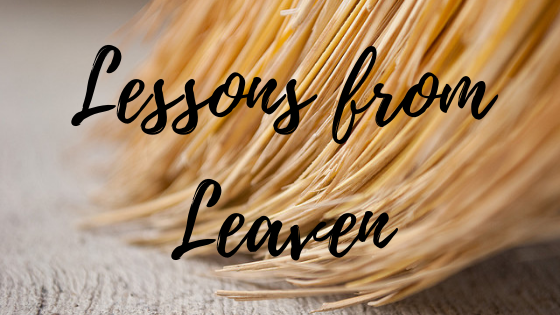Celebrating Pentecost in 2020
As I write this, the holiday of Pentecost is coming up in just a few days, on Sunday. Although I grew up attending mostly Pentecostal churches, it has only been in recent years that I have begun to understand what this holiday is all about and just how significant it is.
What I knew about Pentecost was that it was an event that happened in the New Testament in the book of Acts, when the Holy Spirit was poured out on the believers in Jesus/Yeshua. There was a loud sound of a rushing wind, tongues of fire came and rested on their heads, and they spoke in languages they did not know. As a result, many people who heard them speaking also became believers in Yeshua.
Here's what I didn't know: Pentecost is another name for a Biblical Holiday that has been celebrated since the Old Testament! It is also known by the Hebrew name of "Shavuot", which means "weeks". In English it is often called the Feast (or Festival) of Weeks or the Firstfruits of the Wheat. You can find the instructions for celebrating Shavuot in Exodus 34, Leviticus 23, and Deuteronomy 16. The people were to bring a firstfruits offering in proportion to how God had blessed them, 50 days after the day the firstfruits of the barley were offered. There were other sacrifices and offerings also to be made on this day, and everyone was to go to the Temple and rejoice before the Lord. This was huge! Historical documents describe how people from all of the communities of Israel joyously made their way to Jerusalem to present their firstfruit offerings at the Temple. They were welcomed by those who were already there, lining the streets and cheering, singing, and dancing.
Now thinking about Pentecost (which means 50) in Acts 2 with this context in mind opens up a whole new perspective. By this time, there were Jews living in other countries and speaking other languages who made the pilgrimage to Jerusalem for the festival. When the followers of Yeshua began speaking in other languages, enabled by the Spirit of God, the crowds that gathered were hearing about Yeshua in their own languages! This is just amazing to me! And there's more.
Calculations have been made from scripture that tell us that the giving of the Torah at Mount Sinai also happened on this very same day of the year! Even before God gave His instructions about how to observe this day, it was a very special time. This is the day that God came down to the mountain. There was thunder and lightning, and the sound of a loud shofar (ram's horn trumpet) that got louder and louder. God descended on the mountain in fire. The whole mountain was enveloped in smoke and it shook violently. The people were so afraid that they were trembling and would not come close. They sent Moses up to talk to God, and God spoke to him in an audible voice. He told Moses what to tell the people, engraving His words, His covenant with the people, on two stone tablets. Jewish tradition says that when God spoke audibly, he spoke in every language so that the mixed multitude at the foot of the mountain could hear and understand.
Can you see the correlations and connections going on here?
This was all very amazing and interesting, but you might be asking how it's all relevant for us today. What can it possibly mean for us now, in 2020, when most of us are stuck at home because of a pandemic and life has become pretty strange? I think it's all very relevant and important to us, especially in the strange times we're living in.
I was just talking with my daughters today about the rhythms of life that God gave us from the very beginning. On the fourth day of creation, God created the sun, moon and stars, which gave us day and night, months and years, and His appointed times. When we are aware of these appointed times, we can let God order our lives through them. Then our focus remains on Him, and when we start to stray in some way, we can easily get that focus back through the next appointed time. Our lives can settle into a rhythm, God's rhythm rather than our own. Lately it has become especially important to have a rhythm of our days, during these times when one day runs into another with no apparent end in sight. Now is the time when we can rely on God to set a rhythm for us and order our days.
Pentecost/Shavuot is one of these appointed times. Obviously, we can't bring our firstfruits offerings to the Temple in Jerusalem, but there are still things we can do to remember the day and celebrate, even now in 2020, when it might not be possible for us to meet together physically. Here are some ideas:
- Study what scripture says about Pentecost/Shavuot.
- Read the book of Ruth, which takes place around the time of Shavuot during the wheat harvest.
- Have a special meal to celebrate. Traditionally foods made with milk and honey are eaten at Shavuot.
- Make two loaves of bread, like the loaves waved in the Temple at Shavuot.
- Watch some Bible movies.
- Get creative and do some art, crafts, or activities that go along with any of the themes of Shavuot (the 10 Commandments, wheat, fire, etc.)
- Attend an online Pentecost/Shavuot service or conference (these do exist!).
Here are some links that might be helpful:
Maybe you can think of more ideas. If you do, please share them in the comments!




Comments
Post a Comment